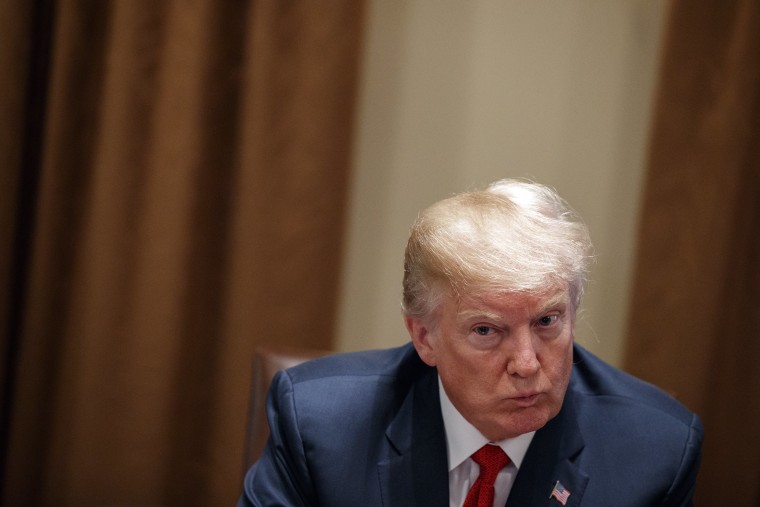Donald Trump reportedly wanted to include military vehicles in his inaugural parade last year. He didn't get them, of course, but the Republican president hasn't given up his dream: we learned this week that Trump has directed the Pentagon to prepare for a military parade in D.C., which he reportedly wants to proceed along Pennsylvania Avenue.
I assumed that Republicans would endorse the idea simply as a matter of partisan loyalty, so it came as a nice surprise when Sen. Lindsey Graham (R-S.C.) suggested such a display would be "a sign of weakness." Sen. John Kennedy (R-La.) was thinking along the same lines.
"I don't think it's a particularly good idea. Confidence is silent. Insecurities are loud," he told ABC News."When you're the most powerful nation in all of human history, you don't have to show it off, like Russia does, and North Korea, and China," Kennedy continued. "And we are the most powerful nation in all of human history. Everyone knows that, and there's no need to broadcast it. I think we would show our confidence by remaining silent, and not doing something like that."
Rep. Lee Zeldin (R-N.Y.) told CNN, "I don't believe we should have tanks or nuclear weapons going down Pennsylvania Avenue."
That is, of course, the appropriate reaction. And yet, Defense Secretary James Mattis yesterday did his best to explain the rationale behind the event.
"I think we're all aware in this country of the president's affection and respect for the military," he said. "We've been putting together some options, we'll send them up to the White House for [a] decision."
But are we all aware of Trump "affection and respect for the military"? There's no doubt that the president likes aspects of military service. He likes a military aesthetic. He likes the idea of "tough" people showing "strength." He clearly appreciates uniforms, medals, parades, and perhaps most of all, flags.
But appreciating the depth and honor of service is something else entirely. If we look past the symbolism and chest-thumping rhetoric, we see a president who's clashed publicly with Gold Star families. We see someone comfortable with exploiting military widows to advance petty political points.
Trump likes servicemen and women "who weren't captured." Trump likes to brag about money he promised to give to veterans' charities, without the necessary follow-through. Trump likes to belittle U.S. generals.
Trump, who avoided military service during the Vietnam War, also liked to say he "felt" like he'd served in the military because his parents sent him to a military-themed boarding school as a teenager. The Republican went so far as to boast that his expensive prep school gave him "more training militarily than a lot of the guys that go into the military."
Mattis may choose to believe that "we're all aware in this country of the president's affection and respect for the military," but Trump's record seems to point in a different direction.
